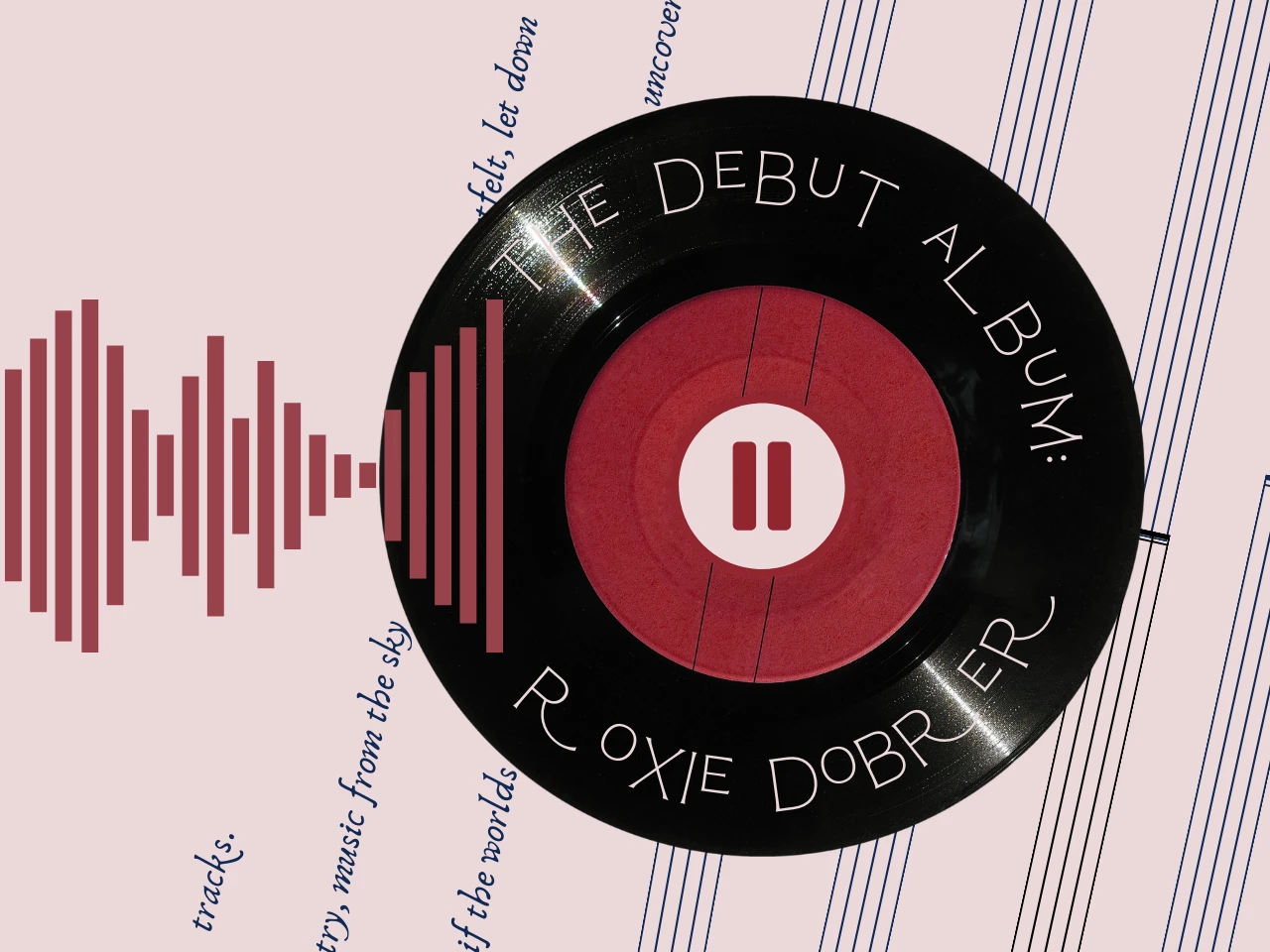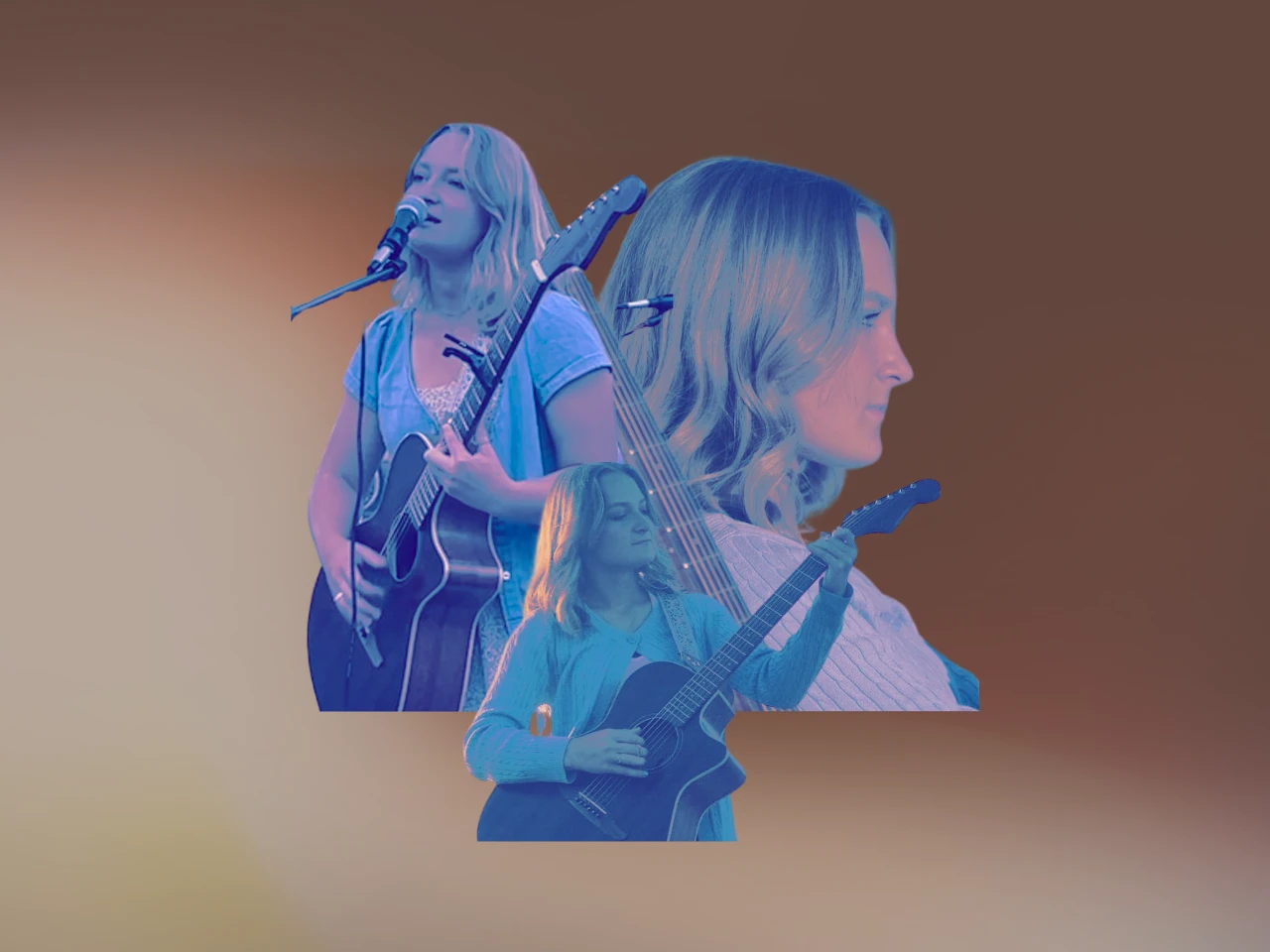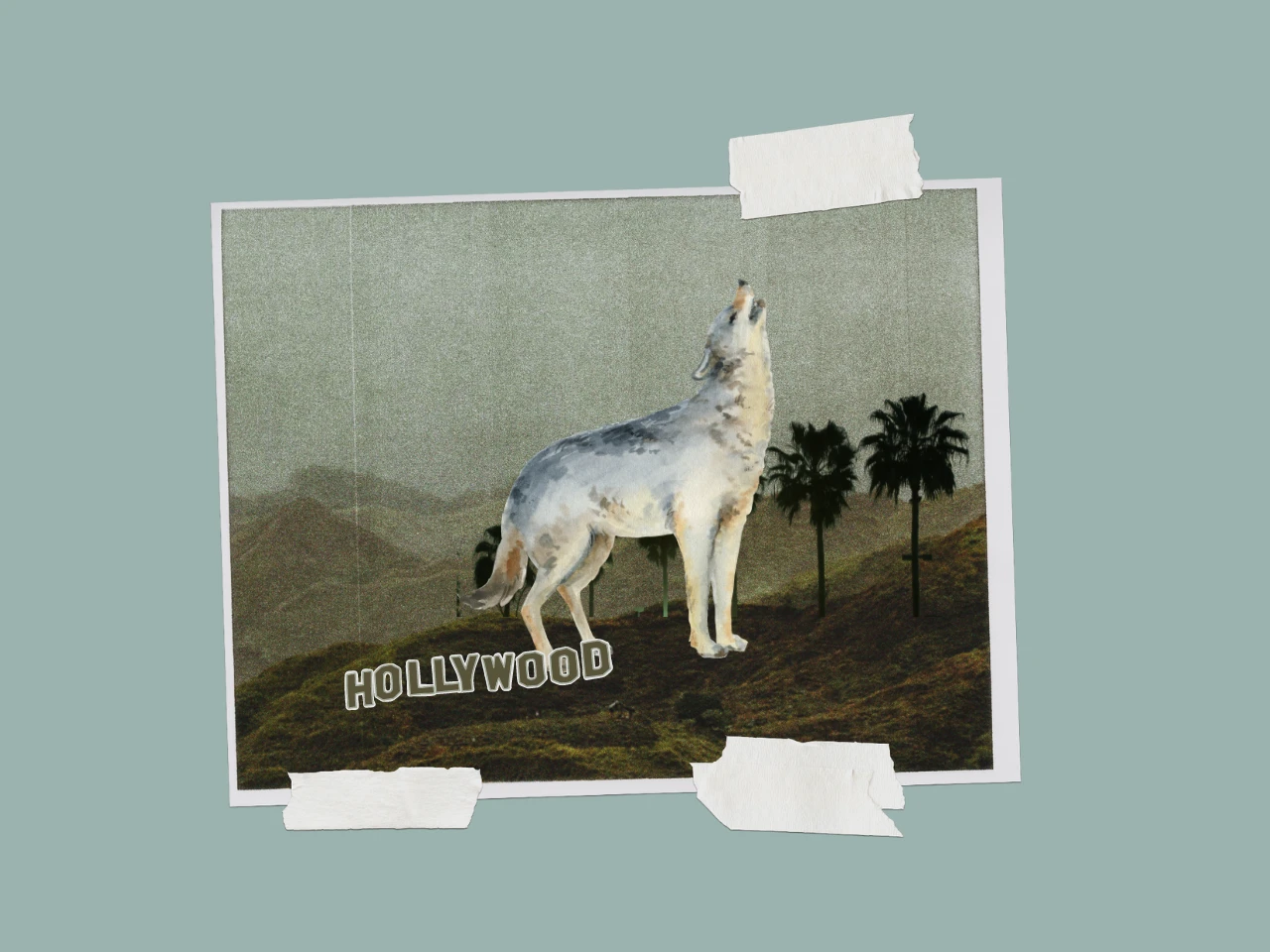Roxie Dobrer as interviewed by Dilara Sümbül for Flat Ink, January 2023
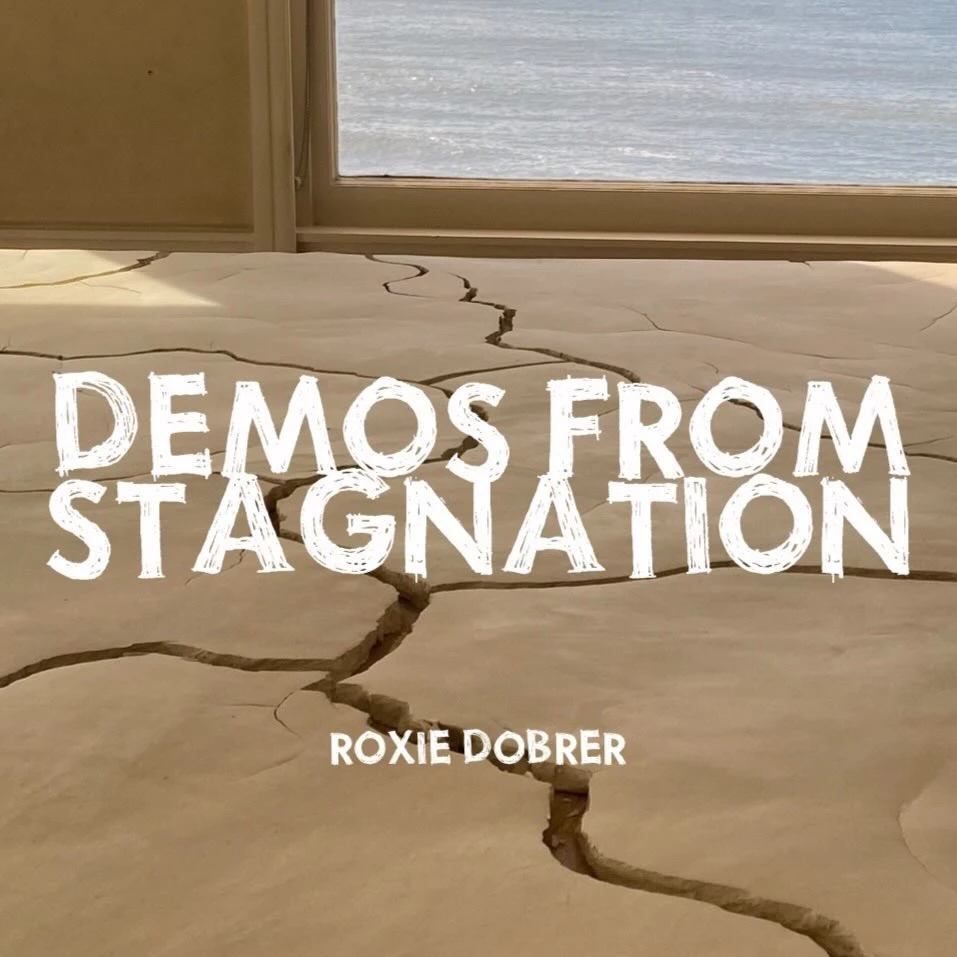
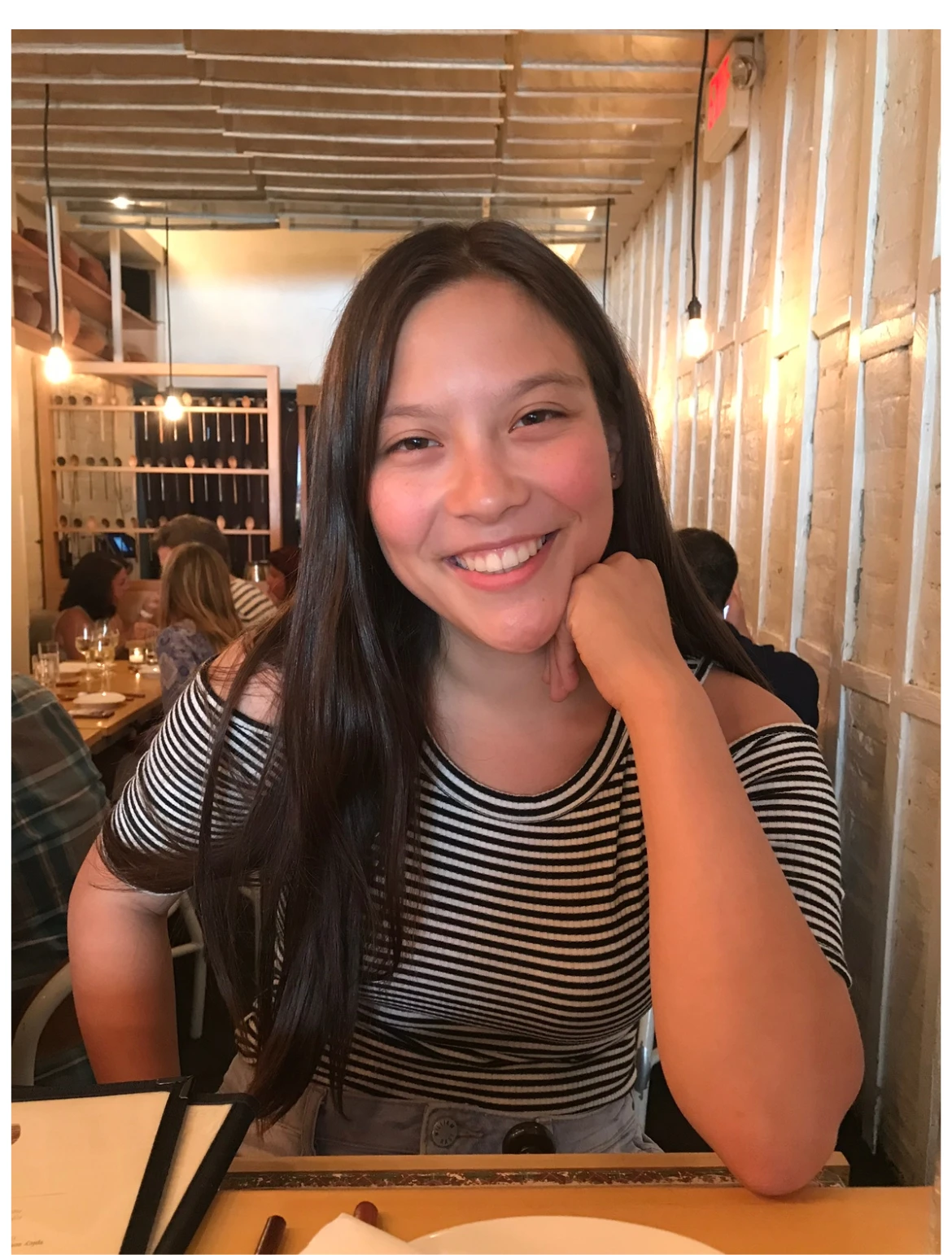
Demos From Stagnation (November 2022) and Roxie Dobrer
Did you go into this album with a specific concept or idea you feel is at the center?
I didn’t really go into the project with any expectations. My dad’s a musician and he offered to help me record some of the songs I had written. Although he has a lot of experience creating music and being there for production, he had never produced music by himself before either, so we were learning along the way. We also received help and borrowed equipment from another member of my dad’s band, who did some of the sound engineering. I’ve written songs my whole life, but once I knew I was going to make a full length project, I had a lot of fun gathering the ones I thought were the best and most comprehensive collection. Heartfelt was the last song written and, at the time, my favorite of mine. There’s a lyric, “Stuck in emotional stagnation, overromanticized my head over heels.” I liked the title Stagnation for the album because it connected to this lyric of feeling emotionally stagnant, but also because these songs were written during covid, during which, obviously everyone was relatively stagnant in a literal sense. I felt like it encapsulated the album, a collection of songs that were born out of a time when nothing in my life was moving, except it felt like everything was moving very fast.
I believe you said this was written throughout early pandemic, which would mean you finished the album while you started college. How did the transition from highschool to proper ‘adulthood’ evolve the project over time?
I didn’t know I was going to make an album until January 2022, so none of them were technically written for it. The first song, chronologically, that made the cut was Maybe, which, and I find this hilarious, was written before Covid 19 shut anything down. It was written on March 6, 2020, when there was a looming sense of dread but everyone was very unsure of how it was going to play out. The final song written was Heartfelt, which I wrote in late December 2021, and finished days before we decided to make an album in January. To me, this means the tracks on Stagnation represent the time of my life relatively between my 16th birthday (March 9, 2020), and the month where people started knowing where they were going to college. Then I recorded it throughout my senior spring and summer. The songs did not change, and I think this next album, which I just started recording over winter break, is going to more truly show the transitional time of my life. I had heard almost finished versions of Stagnation before I left for college, and we continued fine tuning and mastering it while I was away. I was a little disappointed to release when I wasn’t there to see my hometown friends’ reactions, but they made me feel very loved and validated from across the country on release day.
In the opening track ‘I Try’, you really set the tone for the album in such an interesting way. Specifically, the questions you ask seem to encapsulate both the song itself and the rest of the album, as you explore connection and somewhat quiet devotion throughout. I guess what I’m asking is, if ‘I Try’ is the question, is the rest of the album the answer? Is there a point in which you feel this question resolves itself?
I Try was really interesting to write because it started as a stream of consciousness journal entry basically. It was a bunch of frustrated questions that I had written down in my Notes app somewhere during first semester of senior year, when everyone was about five months into being buried in college apps. My friends and I have a joke that someday I’ll release I Try (8 Min Version), because originally it was much longer. I put it at the front of the album because I felt like, as the opening track of my debut project, it was the most complete introduction to myself, the best ice breaker of- here are all of the things I think about, the things I’m insecure about, and how upset I am about all of that. I don’t necessarily think that the questions are answered, but I find that Heartfelt feels like a continuation of a lot of the same thought processes. I Try asks the question: Am I all alone? In Heartfelt, I know that I’m not, but still ask: Would you still love me if I changed? Where I Try asks: Is anyone listening? Heartfelt responds by understanding that people are but no longer wanting it: My life is full of volatility and you don’t want to be part of it. I Try: What is the difference between feeling lonely and feeling unwell? Heartfelt: I am homesick, I am unpredictable, I am lonely, and I don’t want to talk about it.
In ‘Music From the Sky’ you turn towards more narrative lyricism, something that recurs throughout the album. I believe you mentioned you’d be willing to share more specific stories that inspired the songs. If so, would you mind sharing a little more about the inspiration behind ‘Music From the Sky’ or other songs on the album?
This song was based on a poem written by someone I knew in high school, Sumon Bomya, who actually goes to Cal! There was a student anthology at our school for student creative writing, and her poem was called “Me and the Music, the Music and the Rain”. The way she spoke about liberation from negativity in her life, walking in a rainstorm, inspired me, and I decided to write it from the rain’s perspective. I showed her the song right away, and I was really proud of it because I don’t usually write to prompts like that.
More on the previous question with ‘Burning Again’. Throughout the album there’s this strong sense of loss that first makes an explicit appearance here. If there’s anything you’d like to add about that, I’d love to hear more.
Burning Again was written in fall 2020. I feel the need to date each track because to me that holds a lot of significance of how the world felt during that time. We had just gone back to school, full time on Zoom, six months into the pandemic. I had this past relationship that I associated strongly with the return to school in previous years, and I felt very nostalgic for past autumns in many ways (for example, California’s annual battle with wildfires). That year, it especially felt like the world was ending, with the day the sky turned orange, and the unusual and large thunder/lightning storm in the bay area that happened the night before our first day of at-home junior year. I think the feeling of loss was, yes, mourning this specific relationship, but also mourning the time that was being taken from mine and my friends’ childhoods.
In ‘Burning Again’ and ‘Release’ that seems to echo external events with introspection. The track ‘Release’ stands out as less of a protest song and more of a reflection on suburban liberalism and the feeling of being a teenager during historical turmoil. It doesn’t advocate for hopelessness, but seems to be swayed by it anyway. I was wondering if you could elaborate a bit about how your experiences throughout the pandemic, recent political events, etc, influenced the album?
My parents raised me and my sister very politically and culturally aware, but our hometown was very sheltered and liberal. I was encouraged to be engaged, but only started going to protests when I requested it, which was about a year before the protests were surrounding Donald Trump’s presidency. It was the norm for a weekend day to be me and my family driving into San Francisco for a march from the Civic Center, up Market Street, and to the Ferry Building on Embarcadero. Although the marches ranged from March For Our Lives, to the ICE/border policies, to the Women’s March, to BLM, they all followed a very similar formula. I originally wrote a song called Blue, during the week that ended in Joe Biden winning the 2020 election, and it was reworked into Release. But what I think both songs did was try to show a Gen Z, liberal perspective on the repetitive feeling of fighting for what you think is “right.” There’s a lot of dialogue around what is performative and what is not, and I always make sure I understand exactly why I am at an event and how my values align, but there is often an accusatory tone with which people talk about attendance to political demonstrations. Obviously the right to assembly is historically important to decisions and change being made, but there are many times when little change results from large public efforts. Coming of age in that political climate has been very interesting, especially when values are often so misaligned on either side of a topic that it feels impossible to see a middle ground.
‘Release’ is one of the two songs where you reference your hometown (alongside ‘Let Down’). Do you feel there’s a certain way in which your background and hometown have shaped your perspective as a musician?
I grew up about half an hour outside of San Francisco, in a very white, very liberal area. However, my family spent a ton of time in the city, unlike many of the families in my suburb. For my whole life I’ve wanted to live in a city, rather than outside of it. In Release, this came into play because we had to drive into San Francisco for political protests, and I often felt like the only person from the suburbs showing up. I’m sure that’s an enormous generalization, but in middle and high school I was the only person I knew regularly making the trip for political causes I knew my peers supported. But what is supporting then? Reposting an infographic? We weren’t old enough to vote. But then, what was the protest doing? Many of those marches did not directly result in jurisdiction changes or huge progress being made. In 2020 I spent countless afternoons phone banking and writing letters to voters, feeling completely helpless that I could not vote in the election. To me, living in a true urban area would hypothetically solve the isolation I was feeling.
Let Down completely pivots this. I wrote it in the fall of my senior year, after submitting my final college applications. It says, “I was born wishing to move away from my hometown, but right now I’m scared that the promise is empty”. Although in a way this “promise” represented a politically active environment, it also represented a reset, a new adventure, and New York City. This is very cool to look back on now, because I go to college right outside of Manhattan and get to go all of the time, and it all lived up to the hype :)
Throughout the entire album, you incorporate an acoustic sound that seems strongly inspired by Laurel Canyon artists such as Joni Mitchell along with simultaneously more upbeat and modern sounding songs like ‘Music From the Sky’ and ‘If the World is Ending Now’ that sound very Mitski. Were there any specific artists that you had in mind, or pre-established sound you were going for?
Oh my gosh these are such amazing compliments! I was raised on classics like Carole King, Bob Dylan, and the Beatles. In more contemporary music, I’m obviously a huge Swiftie (see Burning Again), and I am super inspired by the lyricism of Phoebe Bridgers and Lizzy McAlpine. Let Down was very inspired by and written the day after the release of Nothing New, the collaboration between Taylor and Phoebe.
‘If the World is Ending Now’ is very polished and wouldn’t sound out of place in a musical’s soundtrack. Do you feel that your background in musical theatre is incorporated within your song writing?
For sure! I did a summer program called Broadway For All, which was a Musical Theater Songwriting program for non-male and/or non-white creators. I submitted If the World Is Ending Now, as well as Blue (the original version of Release), and got in. During 2020 I tossed around the idea of writing a musical about covid, and a few songs that I still love came out of it, including If the World Is Ending Now and Maybe. The chorus of If the World Is Ending Now (if the stars go dark and the sky turns green…etc) was transplanted into four or five different songs before I figured out how the verse was supposed to sound. When it was part of a musical, this song was a duet between romantic partners, so there are a few versions of each verse that this song cycled through- when I decided I wanted it on the album I used the more autobiographical lyrics about high school and Zooms, rather than its original form about a fictional couple going through how I imagined their pandemic. In musical theater, a song has to move the plot along. Many incredible songwriters are famous for their storytelling. I think that I have picked up my narrative style from countless sources of inspiration, but yes, my theater roots definitely took control of a few of these songs.
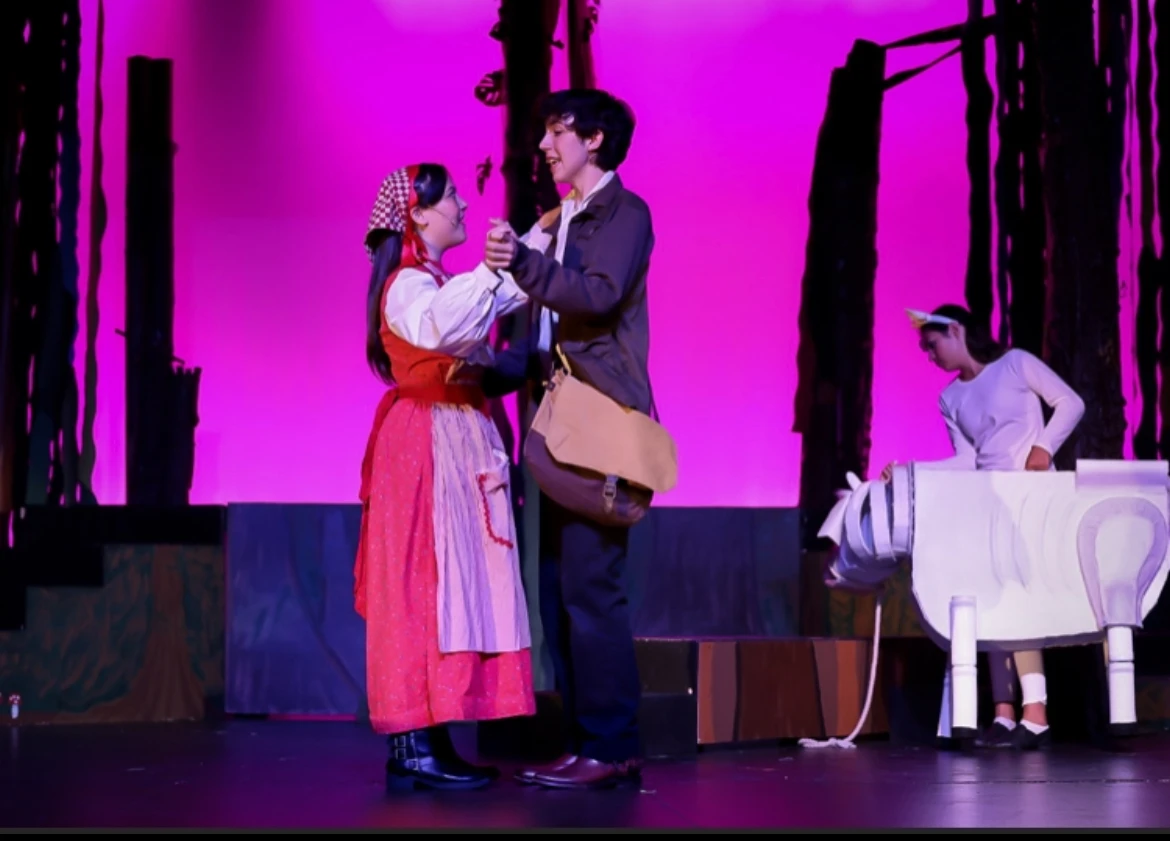
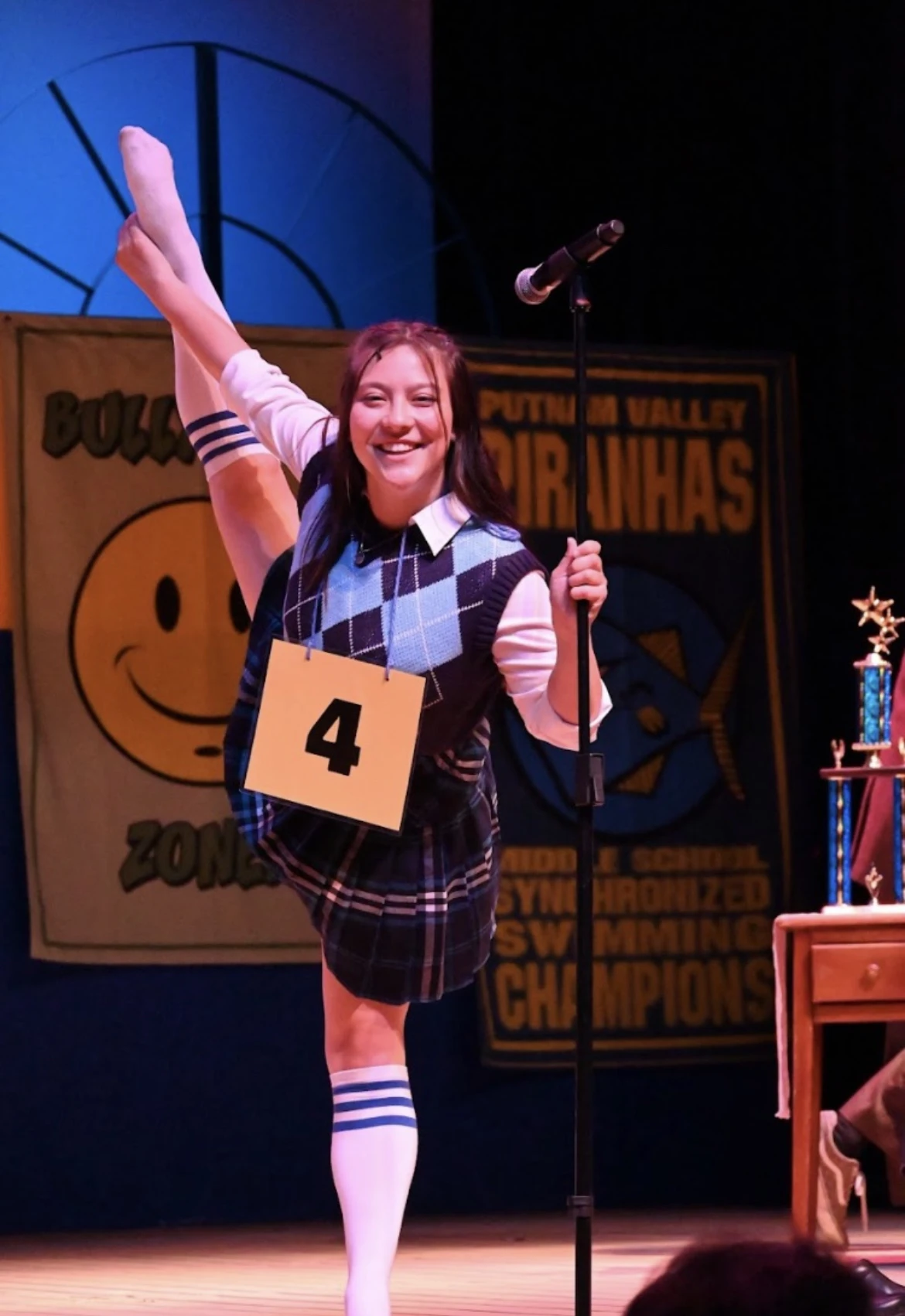
Roxie Dobrer with San Carlos Children's Theatre
The song ‘Slow Down’ has to be my favorite on the album, and its sound blends into ‘Maybe’ perfectly. In both of them, the piano and vocals together are almost ethereal. What would you consider to be your personal favorite?
Thank you so much! My two favorites are probably Uncover and Heartfelt. Uncover just felt like this lullaby that flowed out of me. I wrote it in late 2020, and felt it expressed how I often view vulnerability in friendships. One of my favorite moments as an artist was watching the person I wrote it for hear it for the first time. Heartfelt articulated so much of what I had been thinking about throughout the pandemic. It was the culmination of a lot of art I’ve seen (namely Inside by Bo Burnham, Tick Tick Boom, and Sunday in the Park with George). I discovered or revisited those three autobiographical takes on ‘life as an artist’ in the span of about six months and wrote Heartfelt at the end of it. Slow Down definitely became one of my favorites during recording. The production of that one was so fun, and my dad had the idea for all of the cyclical harmonies at the end. Another amazing contribution my dad made was that I didn’t want to put Maybe on the album! I thought it was too dramatic and slow, but he convinced me and I’m so glad he did.
How long would you say the songs took to write? Did you write them all in a certain period, and was the process more collaborative/solitary?
Most of the songs I’ve ever written are [done] within a few hours. I usually know for about a week before that I have a song I need to write. Then, when the inspiration hits and I know what it’s about, it all comes at once. For If the World Is Ending Now I had the chorus and put it into many other songs before I found where it was supposed to be. Heartfelt was a fully developed song, but the bridge section (If the smiles came slower, the energy lower…I’m tired of the sonnets and the far away dreams) was added on a couple weeks later. All of the others were written in one sitting, and completely alone. When I finished I would send a voice memo to my best friend, and so I had a record of its original draft, but they’ve almost never changed from the first way they were written. Whatever instrument you hear in the final track, piano or guitar, is the instrument it was written on. Usually that just depended on if I was writing in my bedroom or in our living room where the piano was.
Does listening to the songs make them different in retrospect? Has there been a point in which you’ve found the personal meaning of a song or lyric changed by writing it down or sharing it?
I’m not sure listening to the songs has altered them that much, since it hasn’t been long enough since writing them to revisit. I think down the line I will have a different perspective on that, but these ten songs have played such a huge part in my life for the past year that I don’t think I’ve gotten a chance to step away and reflect. Releasing it, however, was huge. A lot of people in my life vaguely knew I wrote songs, but most had never heard any. I released it as a surprise so that I didn’t have a chance to get nervous. It was a surprise to me as well- My dad and I were registering the rights for the songs and it gave an option to set a date or ‘ASAP’, and it turned out ASAP was that night! I had no idea if anyone except my close friends were going to listen to it, so every nice note that I got was mind blowing to me. I still can’t believe people are listening, and relate to the things that I felt so isolated in writing. There are some songs on the next album that I’ve already had some pretty incredible sharing experiences with as well, so I can’t wait to share those when the time comes.
You’re currently studying at Sarah Lawrence College. What are you studying, and what are you hoping to do musically in the next four years?
I’m currently studying child development and music, and I’d love to eventually be a performing arts educator of some kind! I’m a Teaching Artist at my hometown children’s theater, and that’s been extremely rewarding. Since around April of 2022, I’ve been writing, and I have a sophomore album in the works! It was finished writing around November, and I recorded most of it over my winter break home, again with my dad and our family friend. We’ll be working virtually on production during my spring semester, so keep an eye out for more music sometime in 2023!
Apple Music YouTube Amazon Music
Roxie Dobrer is a musician and student at Sarah Lawrence College. Her instagram can be found at @roxiedobrer. The album is © Underpop Records and was released on November 8th, 2022.
Dilara Sümbül is a writer from San Francisco and student at UC Berkeley. She is the editor-in-chief of Flat Ink, and additionally works as web designer and in-house artist. Her work has been recognized by The National YoungArts Foundation. She is the is the descendent of Maraş, Istanbul, Almaty, and their literature, and more of her work can be found at dilarasumbulwriting.com.
Editorial Art by Dilara Sümbül.

